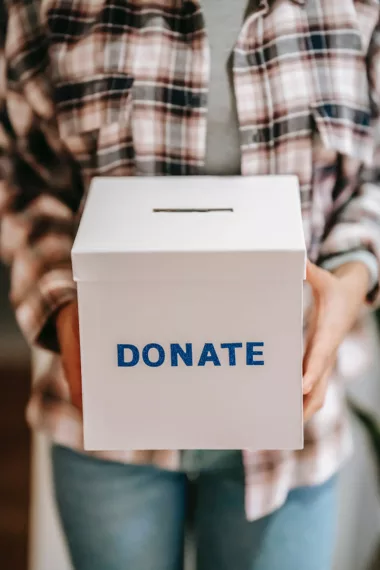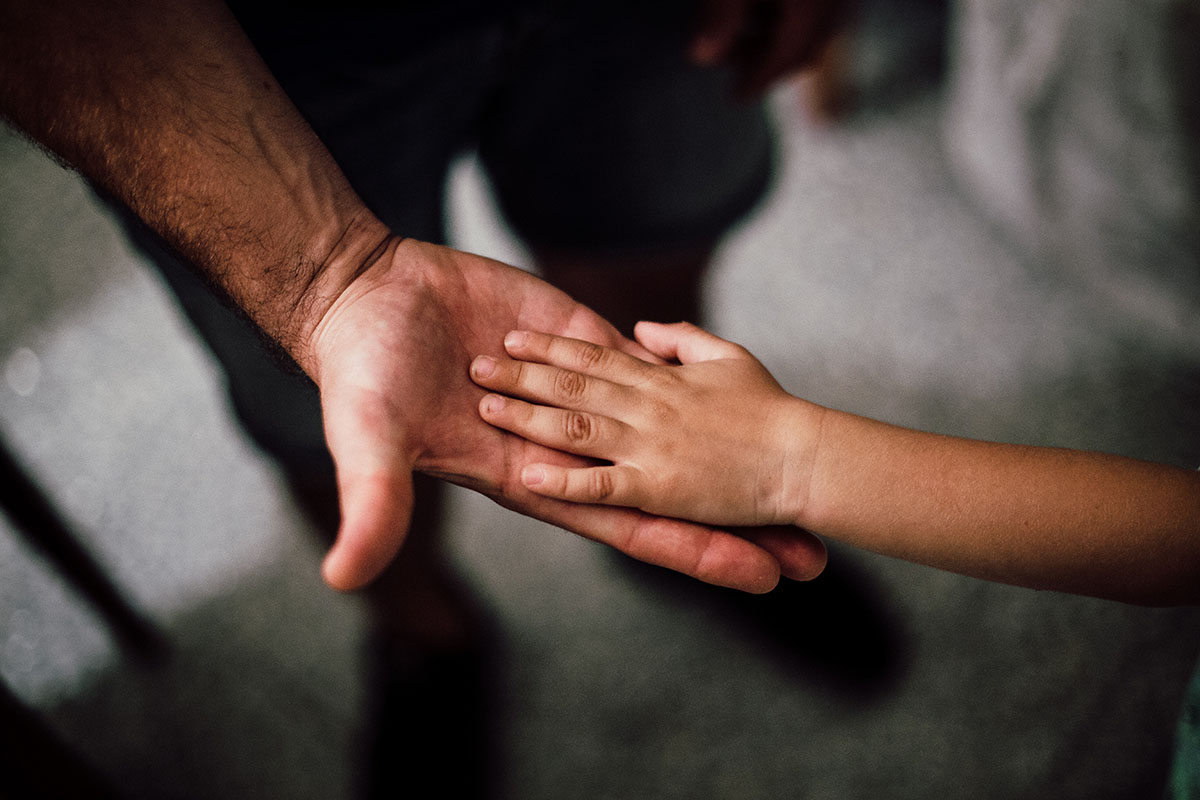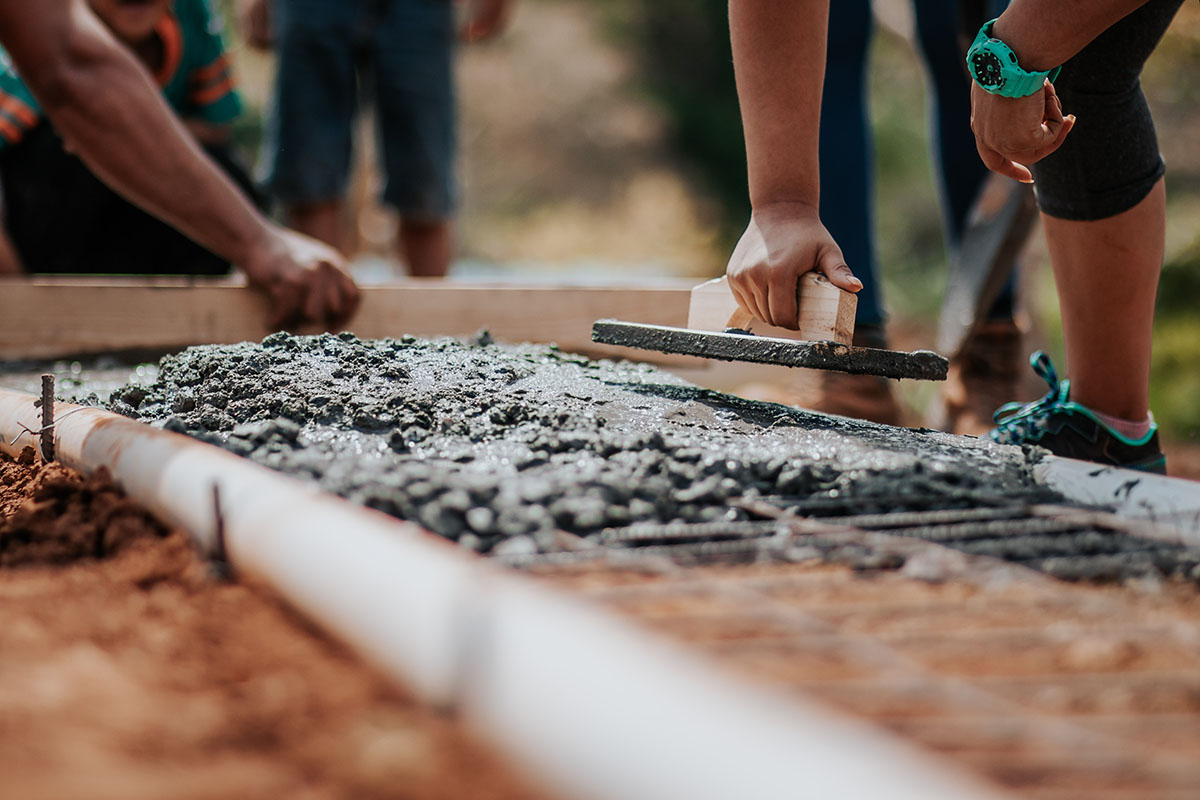inSince the summer of 2020 I have been sponsoring a little girl in Jamaica who is almost 7 years old. Between the moment I made the decision and the moment we started the sponsorship it took several months. Because it took me time to understand how sponsorship works. How to verify that the organization is legitimate. To become familiar with this new world that I didn’t know. How to sponsor a child abroad.
It took me a while to talk about it on Instagram because the process is very personal. But then again I thought maybe talking about it could help other people understand better and get into this adventure too.
What is sponsorship of a child?
Sponsoring a child means making a financial contribution to facilitate his or her education. The donation is made on a monthly basis and most of the time through an organization. Depending on the program, the money can be used to pay for school, school supplies, transportation to school, groceries, clothing or other items.
Why sponsor a child?
Each person has their own reasons for deciding to sponsor a child. But for me it was a step I wanted to take once I had achieved some financial stability in my life. For me it was important to share that stability and give back to others. In this case a child, who needs help.
It is also the opportunity to contribute to the construction of a better life for a child who is going through a difficult situation. To have an impact on his future and to allow him to grow in better conditions.
Steps to prepare to sponsor a child ?
Once the idea of sponsoring a child starts to mature in your head there are several things to think about before doing further research and these are the steps I went through:
- Budget what you can actually spend on sponsorship (I gave myself a monthly budget that I split between sponsorship and monthly donation I give to Sick Kids here in Toronto)
- Child’s profile that you want to sponsor: country, gender, age. For example, I wanted a little girl to support the women of tomorrow, in Jamaica because my boyfriend is Jamaican and I wanted to help someone from his community. The choice of country is a very personal choice that can be linked to one of your trips, to your origins, to your history, it is really up to you to make this choice.
- Based on your country of residence you may prefer to be able to make donations in your currency and/or for an organization based in your country (when there is a change of currency there may be fees, so the final donation may be reduced, outside your country it is possible that donations are not tax deductible – I will talk about this below).
How to choose the organization to sponsor a child?
When I started my research I realized that each organization focuses its mission on different geographical areas. I advise you to type the name of the country + sponsor a child, country + sponsor a child, country + sponsor a child. You will get a certain number of answers and then you can visit each of their websites to see what the options are. You can also look at the possibilities of real life meetings and humanitarian missions. Once you have identified several potential organizations you can begin to verify their seriousness and if they are legitimate.
How to verify that the organization is legitimate?
Unfortunately, despite all the goodwill in the world you might have, there will always be people who take advantage and are dishonest. So you really need to check that the organization you want to work with is legitimate. Here are some tips I can share with you from my own experience:
- Type the organization’s name + “review” into Google to see what comes up.
- Check out their social networks and read the comments under their posts/reviews on their Facebook page.
- Research the organization’s address. I remember one comment that came up a lot about an organization I found: their office was in a very wealthy part of Paris and people felt like they were paying for the rent instead of the kids.
- Researching the date of creation, even if it is not always a guarantee of seriousness, can help.
- Check out the Charity Navigator site which rates charities on a variety of things: finances, impact, leadership and community. I was really warned about the finances so that’s what I would encourage you to look at: where the money you give goes. It’s only natural that some of the donations go towards the operations of the organization but the majority of donations should go back to the children (that’s the Program Expense tab).
Get in touch with the organization by email and ask for a call to discuss and ask your questions. This is what I did and it was really reassuring to talk to them. Especially when the conversation started with a really nice chat without directly talking about the donation. I had a really good feeling.
Why choose to sponsor a child in his family rather than in an orphanage?
One thing I learned during my research, thanks to one of my subscribers, was that sponsoring a child living with his or her family was better than orphanage. You can learn a lot more by watching this TED talk by Tara Winkler. If you’re not fluent in English, I’ll give you the highlights of her experience and the important information to remember.
She explains that she donated to orphanages during her travels and returned to volunteer the following year. Except she discovered that the orphanage was corrupt. She put together a team and her own orphanage to save these children, thinking the solution was to open a better orphanage. Then as she learned the local language, she realized that many of these children actually had families and were not orphans. These children were being taken from their families by organizations that were making money off of them while forcing them to live in unsanitary and abusive conditions.
Family based care
We have heard a lot about this in Canada lately with the discovery of bones around the residential schools and it is unfortunately the same principle in these cases. Children are taken away from their families to be placed in boarding schools/children’s homes/orphanages or whatever you want to call them, and this exists all over the world (I invite you to look at the website of the association Survival with whom I am in contact to organize an Instagram live in the fall so that we can learn more together). The links with their families and their cultures are cut or even denied for many of them.
The alternative to these orphanages is what we could call “family based care”. Instead of removing the children, the organizations, the community and you, through your donations, work to prevent the families from being separated, so that the children can grow up in their family environment. They contribute to the access to autonomy of families in difficulty by giving priority to education, by teaching them to manage their budget, by providing them with the necessary resources, by contributing to the costs of the children’s education.
The process of sponsoring a child
I will share my experience with you, depending on the organization the steps may change.
- I found Won by One Jamaica after much research (I had found orphanages in Jamaica but no sponsorship and I really wanted to have the opportunity to have a relationship with the child I was sponsoring (and that was even before I learned it was better).
- I read every corner of their website to understand the system. You have a “Sponsorship Program” page that details the cost per month based on their age and grade, and an “Eligible Students” page that lists the children waiting for a sponsor. Details about the missions, the organization and everything you need to know.
- I contacted the organization and they offered me a call (which I appreciated 2000%). I wanted to know if it was possible to sponsor knowing that I am in Canada and that the organization is based in the United States. I was able to ask questions. Get to know the organization, my contact person. He was able to learn more about me too. I explained my background and my motivations. He told me about the opportunities to meet the girl (I’ll talk about this below) and to volunteer there.
- I told them the name of the child I had chosen. I have a hard time with this term because if I could I would help all the children. But each one has a little description and a picture. Her description made me smile, she looked bubbly, I wanted to get into her life.
- We set up the direct debit. I asked for a quarterly debit instead of a monthly one since it’s in a foreign currency and to limit the fees.
Changes
- This summer I received an email from one of the leaders informing me that my goddaughter was going to move up to the next grade at the beginning of the school year. And that the amount she would need to pay would increase by 15 USD (18CAD or 13€). I have the choice to say okay no worries I can pay. Or no it’s too much for me but I will continue to give what I was giving at the beginning (i.e. 25USD/month or 32CAD or 21€). If you can’t give more they will offer on their website to other potential donors to complete the sponsorship.
What your sponsorship money is used for?
Depending on the country, the way your donation is spent may change. In my case, my donation provides transportation to school and lunch at school. Important to know, in Jamaica the schools are sometimes far from the families’ homes, which are not always well served by public transportation. In this case, families have to hire cabs to take their children to school. This has a higher cost obviously, not all families can absorb this cost. By partnering with organizations, families receive assistance and commit to always sending their children to school.
In some other countries donations can be used to provide basic needs such as food and shelter.
This is a question you will want to ask the organization you choose.
Relationship with the child
This question came up a lot when I told you that I was preparing an article on the subject. And it is quite legitimate since as I said above it is not only contributing financially it is also creating a relationship with a child.
Remote communication:
Each case is different. It is often specified on the website of the organization. In my case the organization undertakes to send me her report cards to follow her academic progress. Yes at her age she already has report cards. When I received the first one I was in a state… It is still hanging on my fridge. With her report card I got a letter where she told me that she hopes I will be proud of her work. Didn’t want to cry at all when I read her words. Also got a letter from her mom to thank me for helping them. I sent a letter myself recently with a picture, the organization encouraged us to do so. It allows her family to put a face to my name too!
Real life meeting:
Organizations often offer humanitarian missions in the cities where they are present. In my case it is quite possible in the framework of a volunteer mission on the spot. You can leave for a week to help on the spot. But also bring donations in your luggage. I’ll keep an eye on when this will be possible for me. It’s an experience I’ll share with you. They’ve already told me that I’ll be allowed to share on my social media. and I’d love to be able to put more emphasis on sponsorship and volunteering). If you’d like to learn more about volunteering abroad, read this article.
To know
- It’s better to wait a while and be really ready to invest than to jump in too quickly. It’s a real financial commitment that has a huge impact on a family’s life. If you decide to withdraw, they lose a very valuable helper. It can take a long time to find a replacement.
- Some donations are tax deductible. In France and Canada. For the rest I encourage you to check with your country. You can ask the organization if they provide a proof of donation accepted by the taxes of your country. As I said above. This is not the case for me. The organization is based in the United States with no entity in Canada and does not provide a document accepted by Canadian tax authorities. I could not find a Canadian equivalent. So I decided to sign up with them even though I could not deduct it from my taxes.
- If you are not sure of the budget you can try to find the equivalent amount in your daily life. For me, for example, it’s barely an outing to a restaurant, which I’m more than capable of cutting out so I can allocate that budget to something that makes sense to me.
The resources
The two organizations I can recommend.
- Won by One Jamaica. Since I am living this experience with them.
- Coeur et Conscience. I have several friends who have been sponsoring children for years with this organization (it is thanks to them that I knew that it was a possibility), that they have already gone to Madagascar to meet their godchildren.
I really hope this article will help you better understand how you can sponsor a child. And make an impact in the life of a child halfway around the world and create a very special relationship. If there are any steps that are not clear please feel free to contact me for more information.



















1 comment